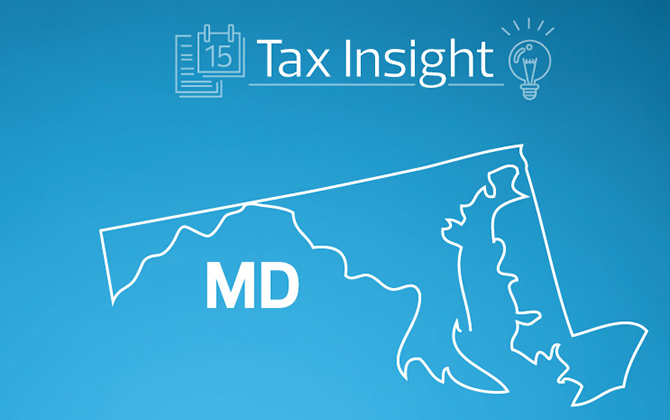Last week, the State of Mryland passed a bill that enacts a tax on digital advertising services. On a sliding scale, the new law requires companies that make money from the sale of digital ads to pay a percentage to the state. As Kate Cox of Ars Technica explains, “Digital advertising services, as defined in the bill, include ‘banner ads, search advertising, interstitial advertising and other comparable advertising services.’
Maryland’s Digital Advertising Gross Revenues Tax
Maryland’s Digital Advertising Gross Revenues Tax does what it literally explains: it imposes a tax on the gross income that businesses earn from digital advertising within Maryland.
This rate is calculated on a progressive scale:
- Businesses that earn less than $ 100 million in a year from global digital advertising revenue are exempt from the tax.
- Companies with global annual gross advertising revenue between $ 100 million and $ 1 billion should yield 2.5%.
- Companies that are between one billion and 5 billion, is 5%.
- For companies with global revenues of up to 15 billion dollars, it is 7.5%.
- And anything above that will pay 10%.

A lawsuit to block this new state tax
A group of business organizations led by the U.S. Chamber of Commerce, including the Internet Association, IAB, NCTA and TechNet, is suing the state of Maryland, seeking to block the implementation of the new state tax. , the first of its kind, on digital advertising revenue.
The lawsuit alleges that this bill is “deeply flawed” and “illegal in a thousand ways.” And they add that this act “will harm Maryland residents and small businesses and reduce the overall quality of Internet content.”
For the Internet Association “This is a case of legislative overreach, which punishes an industry that supports more than one hundred thousand jobs in Maryland and contributes tens of billions of dollars to its economy each year.”
The plaintiffs argue that this bill does not actually introduce a tax, but rather a “punitive fee, penalty or fine.” Furthermore, the plaintiffs argue, the tax violates the Internet Tax Freedom Act (ITFA). Congress first passed the ITFA in 1998 and subsequently renewed it several times before President Barack Obama signed a permanent extension to the bill in 2016. The ITFA is designed to prevent states from taxing access services to Internet.

If this bill goes ahead and finally sees the light, it could start a similar legislative wave across the United States. And it would soon spread to the rest of the world. Big tech cites ITFA to justify their claim, but many critics also believe this law will hit small businesses much harder as tech platforms will find ways to pass that additional cost on to advertisers.
